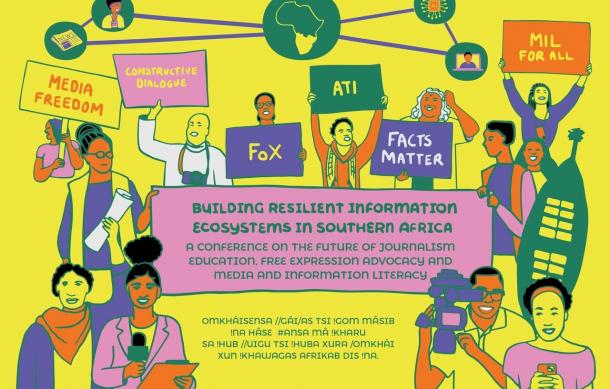
Artificial intelligence (AI) is making its way into African newsrooms, sparking both excitement and concern.
AI tools are being used to automate routine tasks like news writing, data analysis, and even anchoring, allowing for faster news production.
SADC non-governmental organisations, media institutions, and professionals are gathered in Windhoek, debating the impact of AI on journalism, quality, and job security.
Critics warn that relying heavily on AI could reduce human oversight and lead to misinformation, while also threatening the livelihoods of journalists.
Proponents, on the other hand, believe AI can enhance reporting by freeing up time for deeper investigative work and for understaffed newsrooms.
A survey conducted by the Namibia Media Trust Foundation in newsrooms across Malawi, Zimbabwe, and Namibia found that 84% of journalists use AI.
That equates to about 8 out of every 10 journalists.
But what does this say about the balance between innovation and maintaining journalistic integrity?
"I don't believe at this stage AI is going to replace the generalist. It's actually complementing, because when we are talking about ethics, when we are talking about AI, you know, hallucinating, it means that we need a human being to guide the final product, because AI still needs to be edited, and we need to make sure that whatever we produce follows the simple ethics of generalism, fairness, objectivity, and truthfulness. And so I find that even in using AI, we still need to stick to those ethics," said Zenzele Ndebele, Founder and Director of the Centre for Innovation Technology (CITE).
CITE is an online media platform in Zimbabwe that advocates for the use of AI. They use AI-generated news anchors, Alice and Vusi.
Ethical concerns around bias, transparency, and editorial oversight of the automated process were among other points discussed.
"I think it's become clear that educators, journalism educators, have to relook journalism curricula, and that is another issue that we will be discussing. AI literacy and concerns around bias, transparency, and editorial oversight. These are the kinds of things we will be discussing in the session," said NMT Director Zoe Titus.
For CITE, potentially Southern Africa's first news platform to use AI-generated hosts, the use of AI can also cut costs.
"To use human beings to do that would have needed two camera guys, an editor, a makeup artist, a scriptwriter, and a team of about five to seven. So we can have the AI that comes with makeup and everything else. So then you go to ChatGPT or whatever, and you're prompting it to write the script. You already have the clips. One person can produce a video every 10 minutes, if you really focused on it, or every 30 minutes."





